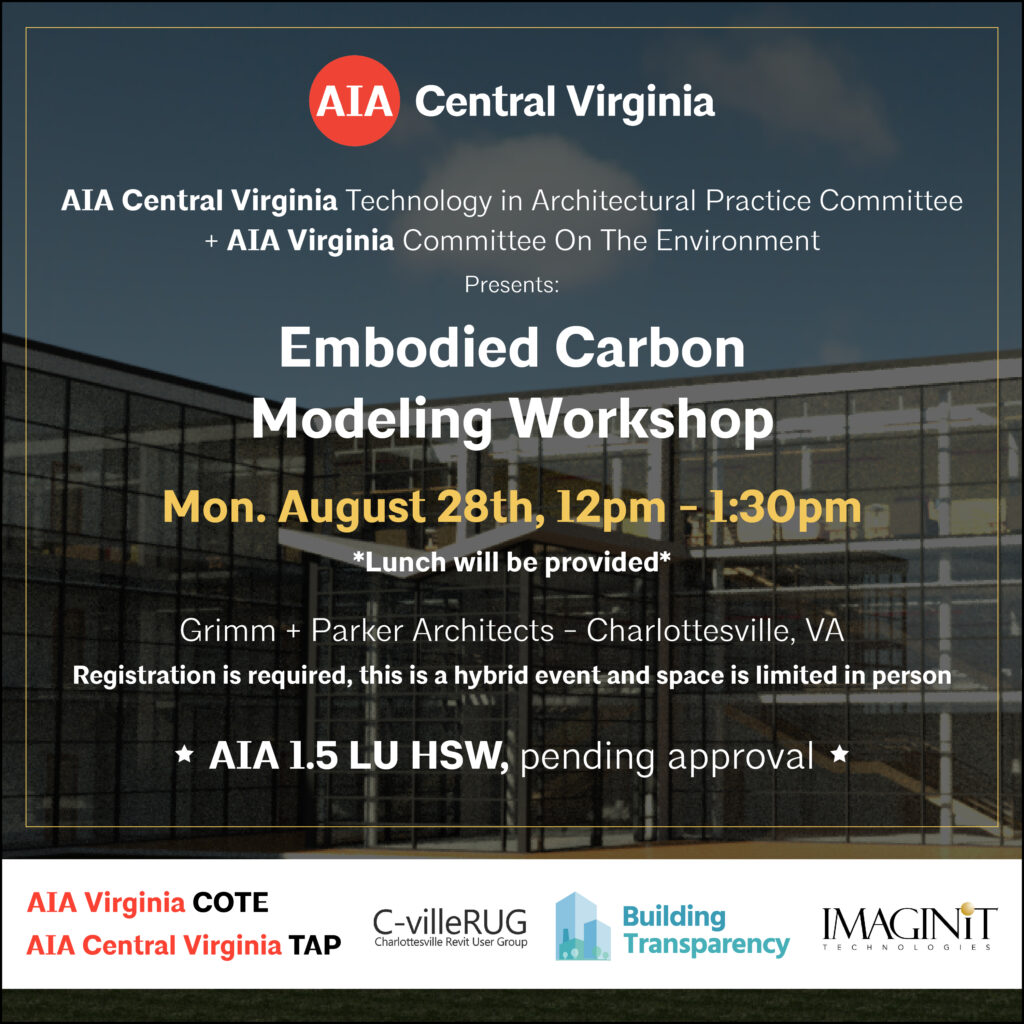There’s a lot of talk about decarbonization out there—and for good reason. It’s widely agreed to be an effective strategy to reduce the embodied and operational carbon footprint of our design and building activities. Embodied carbon, in particular, is a hard nut to crack because—as all architects know all too well—the number of variables in a project’s timeline is formidable. For the uninitiated, it’s calculated as “global warming potential” (or GWP) and expressed in equivalent units of carbon dioxide (CO2e), which we can quantify during a life cycle assessment (LCA) that involves environmental product declarations (EPDs).
If you read that paragraph and took a minute to catch your breath, you’re not alone.
But, AIA Central Virginia Technology in Architectural Practice Committee (TAP) and AIA Virginia’s Committee on the Environment (COTE) has your back. On Monday, Aug. 28, head over to the office of Grimm + Parker Architects in Charlottesville (lunch will be provided) and join a blue ribbon group of experts for the Embodied Carbon Modeling Workshop. For 90 minutes, you’ll have a laptop pre-loaded with Revit, TallyLCA, Tally CAT and Autodesk Insight Tech Preview and you’ll be able to test-drive an embodied carbon assessment in a demo project. The focus is on you and by the end of it, you’ll be able to return to your office and begin the process of reducing embodied carbon in your projects. Registration is open.
Don’t miss this chance to make a change in your work—and inspire others. Decarbonization takes all of us.

